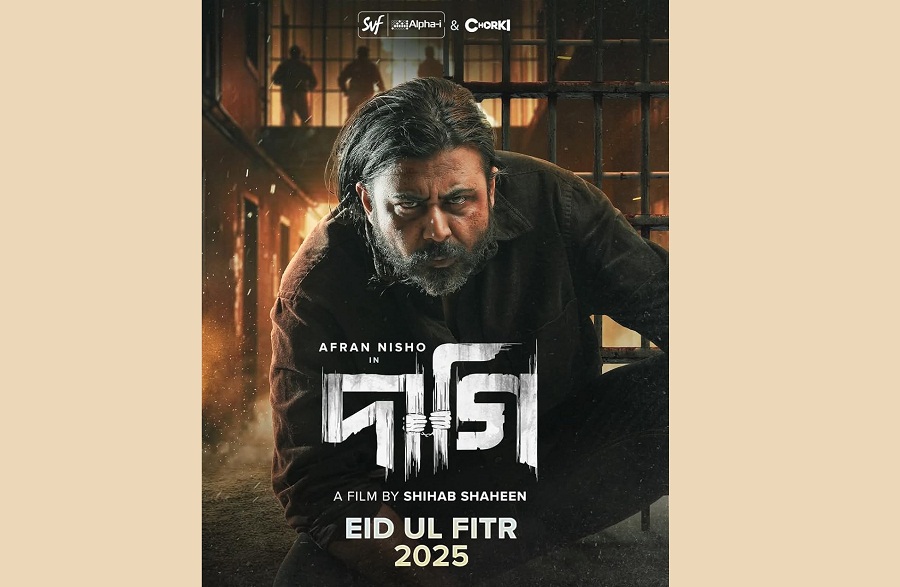
Published :
Updated :

Famous Persian philosopher Mawlana Jalal ad-din Rumi said, "The cure for the pain is in the pain." Daagi is the story of a man suffering from utter pain and seeking salvation from that pain, Nishan, the character played by Afran Nisho.
Director Shihab Shaheen and Afran Nisho both returned to the big screen with Daagi, which was satisfactory. Daagi, perhaps a director's film, is made with care.
As the headline states, the film is a story of Love, Misfortune, Agony, and Atonement.
The movie progresses with these emotions consecutively. The film can be divided into four acts. The first act introduces us to the pure but dramatic love between Nishan and Jerin. As the story progresses, a cruel twist of fate alters Nishan's life forever; the second act is Nishan's misfortune, which elevates the story.
In the first part of the second half, we see Nishan's Agony, and in the final act, we see his atonement.
Daagi takes its audiences on an emotional journey. With uninterrupted narration of the lead character's emotions, good performances by the actors, and decent direction, the film asks the audience, "Why shouldn't we be more empathetic towards the people?"
The story evolves with the lead character, Nishan. Nishan is convicted of murder. After surviving his 14-year imprisonment, he returns to his town. Though he has already passed his legal punishment, what about society? Is society ready to accept a convicted person? Nishan's punishment isn't over; it has just started. Nishan's struggle continues to get a respectful place in society and salvation from his agony.
Viewers travel with Nishan to find the answers to the two questions, Does Nishan receive salvation from his agony, and what is his atonement?
One of the best things about the film is its Dialogue. Shihab Shaheen and the team deserve a round of applause for the memorable dialogues and the use of Urdu Shayari (poems). Poems are used rightly.
When Nishan recites Mirza Ghalib's "Dard ho dil mai to dawa kijiye, Dil hi jab dard ho to kia kijiye," which means "if the pain is in the heart, take medicine, if the heart itself is pain, then what to do" it describes the whole Nishan character.
Every known face worked in the film and delivered a decent performance. Afran Nisho was as good as Nishan. Tama Mirza was satisfactory as Jerin, but the second female lead, Sunerah Binte Kamal as Likhon, was outstanding.
Unfortunately, she was not given much screen time. Also, her character was so poorly written that it didn't impact the main storyline. Rashed Mamun Apu as Robi delivered an outstanding performance as a villain. He also brought a lot of laughs to the audience's faces.
Apart from good direction, decent acting, superb dialogues, and a tight screenplay, the creators get almost full marks in the songs section.
The song Ektukhaani Mon, written by poet Sadat Hossain, composed by Sajid Sarker, and sung by Tahsan and Masha, is especially serene and soothing. Though the song section gets almost full marks, the BGM is poor.
The most underwhelming part of the film is its cinematography. Subhankar Bhar, known for his work in Byomkesh Gotro, Maacher Jhol, couldn't provide top-class work here. Also, some overdramatic situations may have harmed the audience's eagerness.
Daagi is a well-written family drama that offers its audience an emotionally vibrant experience. Despite poor jobs in cinematography and a few overdramatic moments, the film stands strong with its powerful storytelling, memorable dialogues, and decent actors' performances.
rashed.mamun@gmail.com


 For all latest news, follow The Financial Express Google News channel.
For all latest news, follow The Financial Express Google News channel.